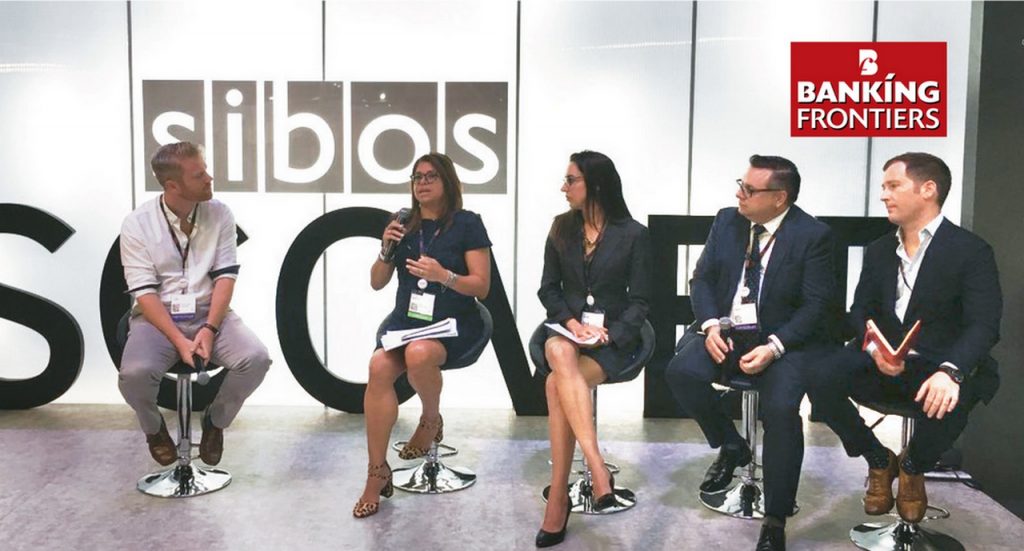
Innovation is the much-sought elixir that is tough to get hold of. SIBOS 2018 had a panel discussion to explore the roots of the problem and working solutions
James Lloyd, Partner at EY, opened with a comment that there is a lot of bank bashing by fintechs. “A lot of fintechs don’t have any proprietary technology. Often, they don’t have scalable solutions,” he added.
On the flip side, regulators have become much more approachable. Not all great ideas come from banks and fintechs. Some come from regulators as well such as PSD2.
Michelle Neufeld, Head of Risk & Control for Financial Institutions Group & International at Well Fargo, emphasized how beneficial it was to be present in Silicon Valley. Apart from the ease of being in touch, Wells Fargo takes the opportunity to co-invest in fintechs. “This brings a comfort level to how that industry operates. We are taking advantage of the early learning to see how to implement.”
Apart from regtech, Wells Fargo is looking at risktech. Michelle explained: “One of our jobs is to underwrite our correspondent bank customers. A group of regulators – FCA, MAS, HKMA, etc – have come together and started an initiative named as Gfin. They have drafted a consultation paper. The regulatory imperatives have to align with the business imperatives.”
Regulators have deepened the dialog between public sector and private sector, she affirmed. She also shared recommended 2 interesting ways to source opportunities – attending conferences and holding brainstorming session.
Sofie Guilder, Head of Experimentation, Blockchain & Embodied AI Innovation Labs at Commonwealth Bank of Australia explained that the history shows that IT is purchased from large vendors with 100s of page of SLA. A new paradigm was needed and that is what she is working on, so as to filter projects and also get management buy-in.
“We aim to be the biggest customer for our fintech partners. The future of interaction between bank and customer will be very different in the future,” she averred.
Julian Fenwick, Chairman of The Regtech Association, dwelled on the regtech aspects. He said: “There is a need to understand how difficult things can be and how long it can take. There is a sandbox for fintech in Australia. The regtechs have to be bank ready. Regulators too are in a difficult situation as they can’t endorse or espouse or promote or endorse any product. Finally, there is a realization that regulators can do only so much.”
He also alluded to the shortage of talent: “We have seen banks in Malaysia and some other places facing the problem of not having access to talent which is attracted to other countries in the neighbourhood, such as Singapore, Hong Kong, Australia, etc.”
New model emerging where multiple banks come together to partner with fintechs.
Nick Armstrong, CEO of Identiti, who started with Accenture Fintech lab in Hong Kong, finds that banks were not clear on what their problem statements were, which also leads to a lot of wastage.







